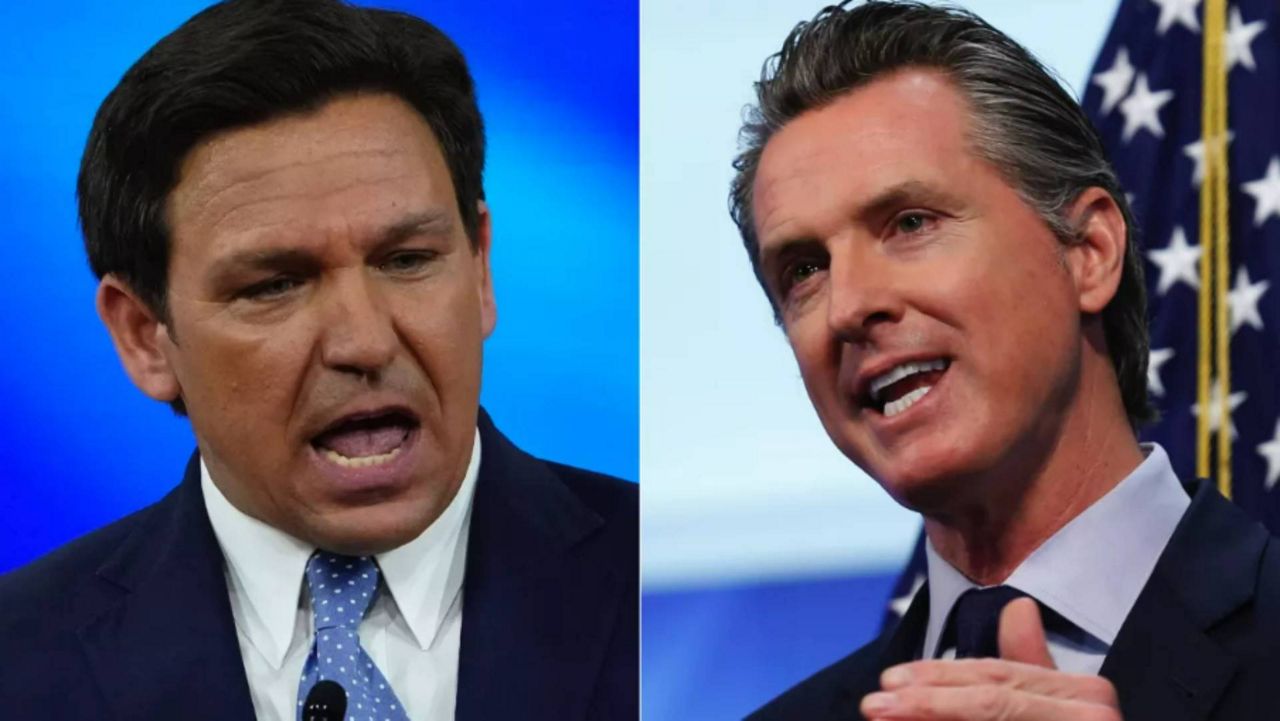The White House is continuing its push to get Americans enrolled in health insurance under the Affordable Care Act, with just days before a special enrollment period ends on Sunday.
The Biden administration opened the special enrollment period in February, and roughly 2.5 million Americans have enrolled in the Affordable Care Act in the months since.
Now, White House officials and other advocates are leading a push to get people to enroll in the Affordable Care Act ahead of the looming deadline.
Speaking at the Brentwood Health Center earlier this week, Vice President Kamala Harris touted that number while also urging Americans in need of coverage to sign up through HealthCare.gov before the enrollment period ends Sunday.
“That is 2½ million people who can rest easier knowing that they can go to the doctor without taking on debt, or heaven forbid, if there is a sudden accident or illness that they can get the care they need,” Harris said. “And I don't need to tell anybody here, this is especially important now, while we are in the middle of a major public health crisis.”
Biden’s $1.9 trillion American Rescue Plan, passed by Congress in March, included enhanced tax credits that lowered premiums for millions of Americans who buy their coverage through the ACA. Harris called on Congress to make those tax breaks permanent, which the White House projects would open the door for 4 million additional Americans to gain coverage. The proposal is part of Biden’s Build Back Better agenda.
“The tax cuts ... are giving our nation's families much-needed relief,” Harris said, adding: “If we do not extend these tax cuts, people will lose out, and they will probably lose their coverage. So we have to get this done."
For some families, signing up can lead to big savings.
“The premiums for health insurance coverage at healthcare.gov are about 40 percent lower than they would have been,” Christen Linke Young, Deputy White House Assistant for Health and Veterans Affairs, told Spectrum News. “About four in five consumers at healthcare.gov can get a plan for less than 10 dollars a month.”
That’s been the experience for Laura LeBrun Hatcher, whose 15-year-old son, Simon, deals with cerebral palsy, epilepsy, autism, a unique genetic disorder, hearing and vision loss.
LeBrun Hatcher says she struggled for years to find adequate insurance coverage. But after Congress and President Biden passed a new COVID-19 relief plan earlier this year, the eligibility for subsidies to buy health insurance on the public marketplaces under the Affordable Care Act changed, too.
“We saved $600 a month on our health insurance, which is a lot,” LeBrun Hatcher told Spectrum News in an interview. “It’s a huge help."
After a year of watching her business struggle and putting health insurance payments on their family credit card, LeBrun Hatcher is breathing a little better.
"For my family, it's survival," she said.
Interest has been high in a couple of states feeling the scourge of the delta variant. Nearly 490,000 people have signed up in Florida, and more than 360,000 have done so in Texas.
At a nonprofit service center in Austin, Texas, more than 500 people have enrolled so far with the help of staff and volunteers. Foundation Communities health program director Aaron DeLaO said the schedule is booked and they're working to clear the waiting list.
"Especially with the delta variant, people are thinking about their health a little more," he said.
The application process can be complicated, requiring details about citizenship or legal immigrant status, income, and household members. That's before a consumer even picks a health insurance plan. People can apply online, via the HealthCare.gov call center, or through programs like the one in Austin.
About 9 in 10 customers at Foundation Communities have selected standard "silver" plans, which cost somewhat more but offer better financial protection when illness strikes. "That to me says that people are really interested in having comprehensive coverage," said DeLaO.
The Obama-era Affordable Care Act offers subsidized private insurance to people who don't have job-based coverage, available in every state. The ACA also expanded Medicaid for low-income adults, an option most states have taken. The two components cover about 27 million people, according to the nonpartisan Kaiser Family Foundation.









